Managing Stress For Your Skin
Stress is a part of life we all have to deal with, but that can also have all sorts of negative effects on our physical health, such as driving up our blood pressure. One stress symptom that many people have encountered is common flare ups of skin complaints during periods of heightened anxiety. Mental stress can lead to breakouts of acne, and can aggravate conditions such as rosacea, eczema and psoriasis – even flare ups of fever blisters.
Our mental health and physical health are more closely linked than many people realise. Anyone who has come across these problems knows that their very existence can be a cause of higher levels of stress in and of themselves, making us feel self-conscious and even causing us to isolate away from friends and family.
Stress hormones like cortisol are released in larger amounts when we suffer from everyday stress and anxiety, and these can lead to extra sensitivity and reactivity in existing conditions. It can also stimulate the sebaceous glands to produce excess sebum, which can clog pores and lead to acne.
In today’s fast-paced world, it’s more important to manage chronic stress than ever. Working and schooling from home, dealing with illness and even the death of a family member through the pandemic, it’s no surprise that so many of us feel overwhelmed and are suffering the effects of months or years of pent-up anxiety.
So, short of beginning a course of prescription medications, what can be done to cope with stress and address the effects of stress in a way that will keep your skin looking great? Fortunately, there are many easy, natural ways to do so!
Follow a Healthy Diet
Beating stress through a healthy diet can be delicious! Reduce stress levels naturally by adding these powerhouse foods to your daily diet.
Dark chocolate – for the antioxidants and its ability to lower stress hormones in the body. It also doesn’t hurt that it’s effortlessly enjoyable and seen as a bit of a pick-me-up treat.
Fatty fish – like salmon and sardines – can boost your mood thanks to its high concentration of Omega-3 fatty acids, which have been shown to reduce anxiety and depression.
Water – Hydration is double important during busy or stressful periods, and even mild dehydration can increase cortisol levels and make anxiety more difficult to cope with.
Leafy greens – these foods are serious stress-busters, helping to regulate cortisol and blood pressure, and playing a key role in the production of the feel-good hormone, dopamine.
Take some Time for Yourself, and your Skin!
It’s easy to neglect what’s best for us (and our skin) when we’re stressed out. The good news is that taking more time for self-care is a great way to beat stress! When you’re feeling overwhelmed, take a short break for a walk, to listen to music or take a relaxing bath – all of these can help manage stress and brighten your mood.
Don’t neglect your skincare routine. Make it an essential part of your daily self-care, which will make you feel better emotionally and help your skin resist the effects of stress from becoming noticeable in the first place. Do a steam. Do a clay masque. Cleanse, tone and moisturise. You’ll be amazed at how much more relaxed you feel when you take a little me-time.
Take a few Deep Breaths
Gentle exercise, yoga and meditation can help to relieve the effects of stress and help you unwind from all the chaos. Exercise is particularly good for the skin, and deep breathing meditations are known to be a great stress management technique that anyone can practice, any time of day.
And if that doesn’t work
Many people have found relief from daily stress and anxiety with these and other lifestyle changes or supplements, but severe cases could indicate an underlying condition that may be best addressed by medical and mental health professionals, who will be able to guide you through therapy, medications, and other solutions for long term relief. If you suffer from stress and anxiety and are not sure where to go for help, don’t hesitate to get in touch with the South African Depression and Anxiety Group (SADAG) on www.sadag.org.
References available on request: MC-21-087 V02




